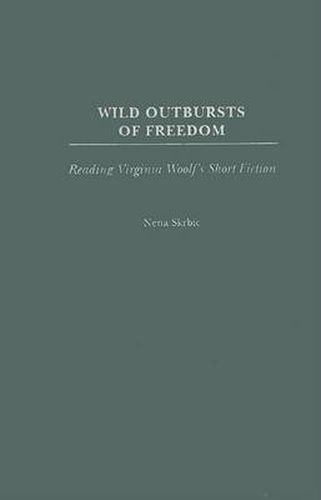Readings Newsletter
Become a Readings Member to make your shopping experience even easier.
Sign in or sign up for free!
You’re not far away from qualifying for FREE standard shipping within Australia
You’ve qualified for FREE standard shipping within Australia
The cart is loading…






A pivotal figure in the world of novelists, Virginia Woolf was an outsider as a short story writer. Her stories form a large part of her output, but they were routinely sidelined in favor of her novels, which remain her pre-eminent literary legacy. Bringing together information from unpublished sources, Skrbic provides a long-overdue examination of Woolf’s experiments with the short story form. Offering a model for the analysis of Woolf’s short fiction, this book gives prominence to the way in which Woolf utilizes the short story’s indeterminate frame to question the form, structure, and conventionalities of fiction. Scholars, students, and fans of Woolf will profit from this careful consideration of a neglected area of Woolf scholarship.
Despite her popularity as a novelist, Woolf was among the very few writers of her generation to face the creative challenge of writing stories with no direct action, human content, or dialogue. For Woolf, writing short fiction was a displacement activity and the short story’s marginal and detached framework lent an ideal shape to her thoughts. Here, Skrbic examines Woolf’s commitment to and enthusiasm for exploring the genre’s potential and looks at how her stories intersect with biography, ghost stories, and the short story cycle. Wild Outbursts of Freedom offers readers a unique opportunity to expand their understanding of Woolf and her work.
$9.00 standard shipping within Australia
FREE standard shipping within Australia for orders over $100.00
Express & International shipping calculated at checkout
A pivotal figure in the world of novelists, Virginia Woolf was an outsider as a short story writer. Her stories form a large part of her output, but they were routinely sidelined in favor of her novels, which remain her pre-eminent literary legacy. Bringing together information from unpublished sources, Skrbic provides a long-overdue examination of Woolf’s experiments with the short story form. Offering a model for the analysis of Woolf’s short fiction, this book gives prominence to the way in which Woolf utilizes the short story’s indeterminate frame to question the form, structure, and conventionalities of fiction. Scholars, students, and fans of Woolf will profit from this careful consideration of a neglected area of Woolf scholarship.
Despite her popularity as a novelist, Woolf was among the very few writers of her generation to face the creative challenge of writing stories with no direct action, human content, or dialogue. For Woolf, writing short fiction was a displacement activity and the short story’s marginal and detached framework lent an ideal shape to her thoughts. Here, Skrbic examines Woolf’s commitment to and enthusiasm for exploring the genre’s potential and looks at how her stories intersect with biography, ghost stories, and the short story cycle. Wild Outbursts of Freedom offers readers a unique opportunity to expand their understanding of Woolf and her work.